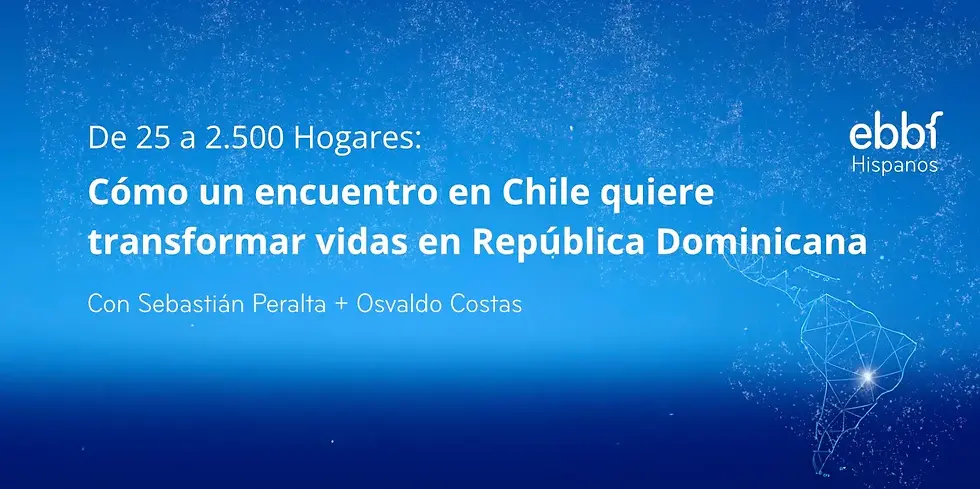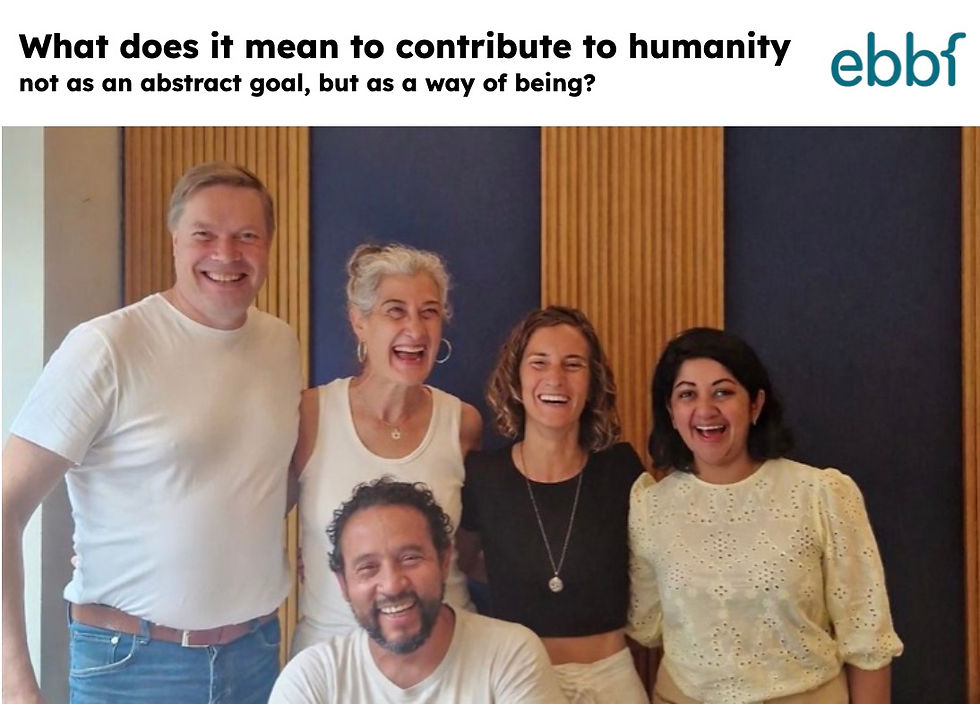New Zealand – Marjo Lips Wiersma defines meaningful work
- Dec 19, 2014
- 2 min read
It is hard to find a more suitable person than Marjo Lips-Wjersma to define meaningful work, a key element of ebbf‘s tagline, as she is the author of the book “Map of Meaning, how to sustain our humanity in the world of work” and of ebbf’s publication: Purpose beyond Profit – Towards a spiritual foundation for corporate responsibility.
She approaches the question ‘what is meaningful work?’ by using the academic literature breakdown into three separate terms:
1. Meaning AT Work answers the question: What makes work meaningful to you? This body of research emerged in the 1970s, 1980s when questions about the quality of work as well as the right to work started being asked. Here, it is argued that the inherent worth and value of organizational actors must be recognized through for example honest communication, fair and respectful treatment, intellectual challenge, considerable independence to determine work methods, democratic participation in decision making, moral development, due process and justice, non-paternalism, and fair compensation. This body of work also led to organisational interventions such as task-enrichment.
2. Meaning IN Work answers the question: How much meaning do you experience at work? This body of research emerged in the 1990s and 00s when the integration between management and existential, spiritual, positive psychology literature which recognized the human yearning for meaning started being made. Here it is argued that the human search for meaning can/should find expression in work to the extent that work provides unity, expressing full potential (talents), developing inner self (virtues, identity) and service. Here interventions are with regard to organisational structure and culture, as well as leadership (in that leadership is found to both stimulate and destroy meaningful work).
3. Meaning OF Work answers the question: To which purposes should we put work? This body of research has emerged alongside the above two, and asks what type of work does and does not contribute to society and concerns itself with sustainability, (over) consumption, equity and equality. This latter one is to some extent the most subjective as some would identify working towards the latest model racing car or toaster as worthwhile whether others would not.
She also leaves two final notes: that “while these distinctions are helpful, and interesting theoretically, these work-meanings do of course overlap” and that “it seems to me that ebbf is doing a great job in covering all of them.”







Comments